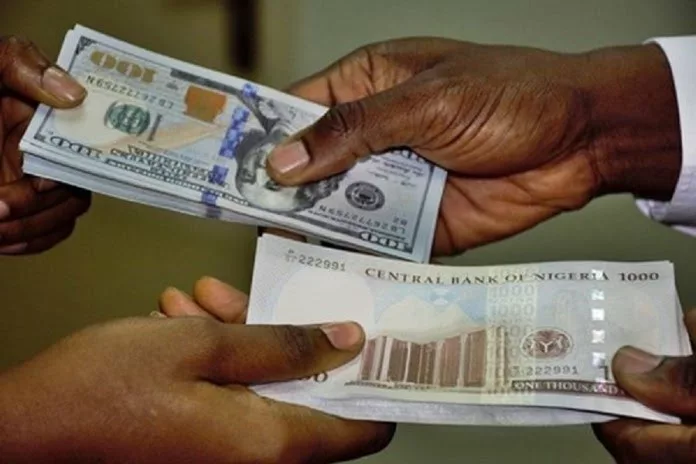The naira has experienced a significant depreciation against the dollar, with the exchange rate plummeting to N1,533.99/$1 in the official NAFEX window on Thursday, May 16, 2024. This represents a sharp 4.89 per cent drop from N1,459.02/$1 recorded just a day earlier, marking the lowest exchange rate seen this month.
Market Volatility
The exchange rate had briefly strengthened on Wednesday, breaking a week-long losing streak, but this stability proved short-lived. The trading dynamics on Thursday highlighted the market’s erratic nature, with the exchange rate peaking at an intra-day high of N1,590/$1 and dropping to an intra-day low of N1,399.20/$1. These sharp movements within a single trading day underscore the heightened uncertainty and instability in the market.
Forex Turnover and Liquidity
This depreciation occurred alongside a notable shift in forex turnover. On Wednesday, forex turnover surged by 124.56 per cent to $289.14 million. However, by Thursday, turnover had fallen marginally by 5.63 per cent to $272.86 million. This squeeze in forex liquidity likely contributed to the naira’s sharp decline in value on the official market. Reduced availability of foreign exchange can increase pressure on the naira as demand outstrips supply, often resulting in higher exchange rates.
Economic Implications
The depreciation of the naira has broad implications for the Nigerian economy. Import-dependent sectors may face increased costs, leading to higher prices for goods and services, which could exacerbate inflationary pressures. This situation strains consumers’ purchasing power and poses challenges for businesses planning their financial activities.
CBN’s Response and Speculation Crackdown
In response to the ongoing volatility, the Central Bank of Nigeria (CBN) introduced certain reforms while targeting speculators. In February 2024, the National Security Adviser’s Office, led by Nuhu Ribadu, in collaboration with the CBN, initiated a joint effort to combat forex speculation and tackle issues affecting the country’s economic stability. This collaboration involves coordinated actions with leading law enforcement agencies such as the Nigeria Police Force (NPF), the Economic and Financial Crimes Commission (EFCC), the Nigeria Customs Service (NCS), and the Nigeria Financial Intelligence Unit (NFIU).
Outlook
Despite these reforms, the naira has moved from being one of the best-performing currencies to one of the worst. Achieving a stable and predictable exchange rate environment will likely require comprehensive policy measures addressing underlying economic issues. The sharp fluctuations in the exchange rate highlight the need for more robust interventions to stabilize the naira and restore investor confidence.





